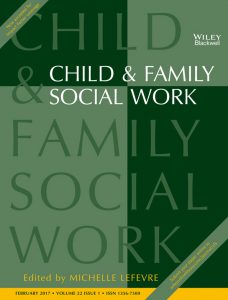Can we play to address violence? Feeling vulnerable while free (at school) with LOVE
“Terroriste: This word resonated in my 5th grade ears during lunch. A girl who I had barely talked to began calling me this. It wasn’t just the 5 boys in my class would come up to me shouting ‘Allahu Akbar’ as if it were a joke.” — Notebook entry of youth participant in LOVE program LOVE Quebec is a non-profit organization that offers programming to youth, through a social development approach with artistic means such as writing, photography, and drawing....











1756-2589/asset/NCFR_RGB_small_file.jpg?v=1&s=0570a4c814cd63cfaec3c1e57a93f3eed5886c15)
1467-7660/asset/DECH_right.gif?v=1&s=a8dee74c7ae152de95ab4f33ecaa1a00526b2bd2)